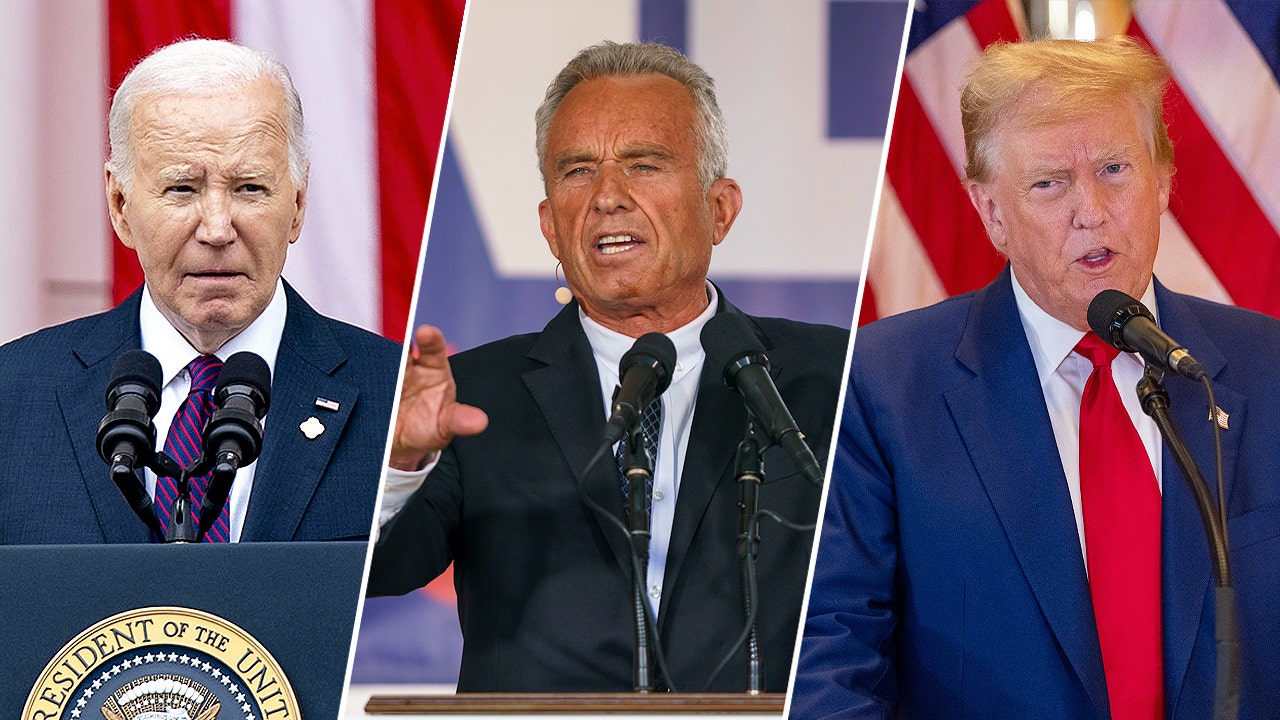Pennsylvania
125 Pennsylvania Trout Streams That Deserve a Conservation Status Update | Theodore Roosevelt Conservation Partnership
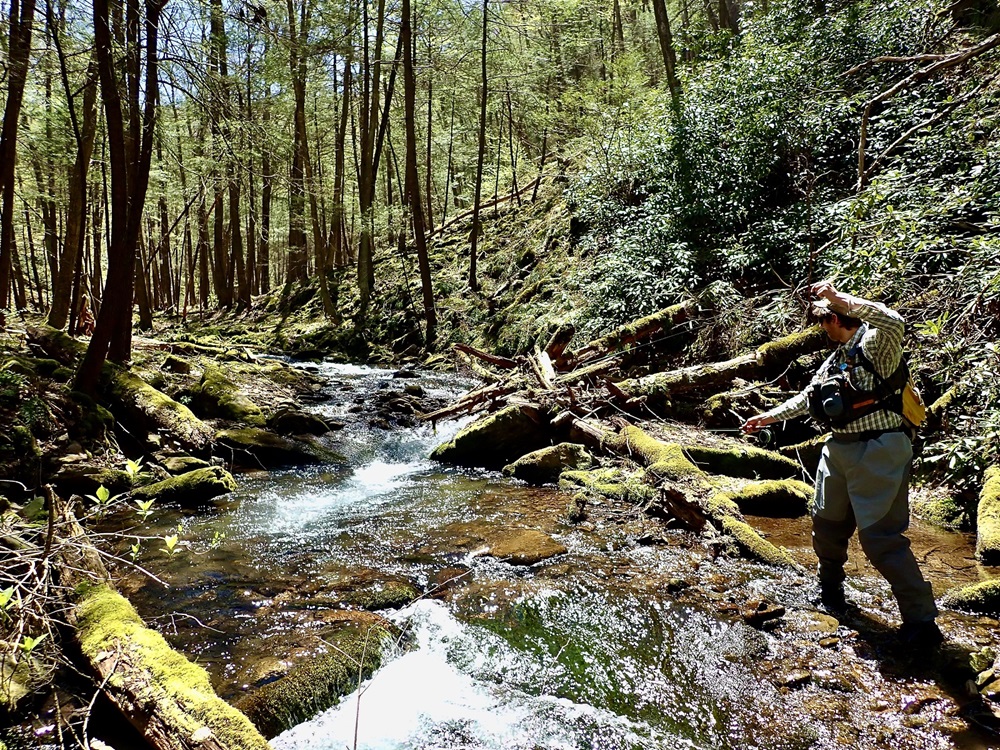
TRCP’s Colorado staff recaps some of this year’s conservation highlights from the Centennial State
As we near the midway point of 2024, TRCP’s Colorado staff takes a look back on this year’s conservation accomplishments and future opportunities.
2024 in Colorful Colorado
The TRCP, alongside other great partner organizations, submitted comments to the Bureau of Land Management regarding big game habitat conservation and energy development in Colorado in response to the BLM’s draft Big Game Corridors Resource Management Plan Amendment, and the BLM’s draft Solar Programmatic Environmental Impact Statement in February and April respectively. THANK YOU to those who submitted comments through TRCP’s comment portal and calls to action related to those two very important, ongoing planning efforts.
Additionally, we provided the Forest Service with feedback on their final Grand Mesa, Uncompahgre, and Gunnison National Forests Plan revision in February. We advocated for important big game management policies within highest priority habitats and Wildlife Management Areas, and for closer management and conservation of the GMUG’s bighorn sheep herds. Bighorn sheep have since been added to the Forest’s list of Species of Conservation Concern.
The Colorado state legislative session ended last week and a few highlights for hunters and anglers include:
Senate Bill 2024 – 026, Agriculture & Natural Resources Public Engagement Requirement was signed into law on May 1 and requires Colorado Parks and Wildlife, Colorado Department of Agriculture, and Colorado Water Conservation Board commissioners to participate in two public meetings per year, specifically to facilitate discussion with the constituencies for which they were appointed to represent. For example, Parks and Wildlife commissioners appointed to represent sportspersons will make themselves available for public discussions, questions, and feedback twice per year outside of normal Commission meetings. Please take advantage of these opportunities to build relationships with those who represent your interests in important policy decisions! Thank you, Senators Roberts and Will, and Representatives McLachlan and Catlin for sponsoring this legislation.
Senate Bill 2024 – 212, Local Govs Renewable Energy Projects passed the legislature and awaits the Governor’s signature. This renewable energy and transmission development study bill will require the Colorado Energy Office to submit a report to the general assembly by September 30, 2025, that evaluates counties’ regulatory processes for permitting renewable energy and transmission projects and the impacts these projects have on wildlife resources. It also requires that the Colorado Energy Office provides the public with the opportunity to review and comment on the report before it’s finalized. We will continue to partner with other stakeholders, track this process closely, and advocate for wildlife habitat avoidance as well as minimization and mitigation of adverse impacts from energy development. It’s important for Colorado to utilize diverse energy resources without sacrificing wildlife populations, migration habitats, or the hunting, angling, and conservation values that TRCP members love so much. Thank you, Senators Hansen and Fenberg, and Representatives Brown and McCormick for sponsoring the bill.
Senate Bill 2024 – 171, Restoration of Wolverines passed the legislature and awaits the Governor’s signature. This bill authorizes reintroduction of historically native wolverines following thorough analysis, public process, and coordination between the US Fish and Wildlife Service and Colorado Parks and Wildlife. Colorado law requires the legislature to first approve any efforts by CPW to reintroduce species. We support this science-based, measured approach to species reintroduction. Thank you, Senators Will and Roberts, and Representatives McLauchlan and Mauro for sponsoring the bill and incorporating lessons learned from past restoration efforts.
House Bill 2024 – 1379, Regulate Dredge & Fill Activities in State Waters passed the legislature and awaits the Governor’s signature. The bill directs the Colorado Department of Public Health and Environment to establish a state-level wetland and stream permit program that safeguards these important habitats for fish and wildlife. The legislation was introduced to address a gap in regulatory protections for wetlands and streams following the U.S. Supreme Court’s decision in Sackett v. EPA which drastically reduced federal protections for most wetlands and many streams under the Clean Water Act. Colorado is among the first states to pass legislation creating state-level safeguards. Thank you, Senators Roberts and Kirkmeyer, and Representatives McCluskie and McCormick for sponsoring this important conservation legislation.
Science-based wildlife management by our state’s wildlife experts is critical to maintaining ecosystem balance and quality opportunities for hunting, angling, and outdoors pursuits for generations to come.
In the second half of 2024 we are looking forward to:
- The US Forest Service’s final record of decision related to the Grand Mesa, Uncompahgre, and Gunnison National Forests. We are optimistic that this will include habitat conservation and connectivity-oriented forest management direction within newly defined Wildlife Management Areas as well as enhanced big game species-specific conservation and management direction. We hope the plan will be finalized this summer so implementation can begin, and we thank all of you who’ve commented on the GMUG Forests Plan Revision over the years!
- The Colorado BLM’s proposed final draft of its statewide Big Game Corridors Resource Management Plan Amendment being announced sometime in late summer or fall. Thank you again to all who submitted comments to the Colorado BLM regarding avoiding, minimizing, and mitigating adverse impacts to key big game habitats from oil and gas development on public lands!
- The BLM’s proposed final draft of its Programmatic Solar Environmental Impact Statement highlighting areas worthy of excluding from development vs. areas where lower-impact development should be prioritized across 11 Western states. The BLM is still reviewing the many comments they received on their draft Solar PEIS. We look forward to reviewing changes made when the final draft is released, and hope they incorporate TRCP and partner organizations’ request that the BLM exclude the highest-priority big game habitat on BLM land in Colorado from utility-scale solar development.
- Colorado Parks and Wildlife Commission, Regional Caucus, and Sportspersons Caucus meetings, which are all open to the public and include important discussions relevant to hunting, fishing, and wildlife conservation across Colorado. See the Colorado Wildlife Conservation Partnership events calendar or Colorado Parks and Wildlife website for more information.
- Helping ensure Colorado voters understand Colorado’s long history of responsible and highly successful species and ecosystem restoration and management, and have access to the latest data and science before signing to support, or potentially voting on ballot initiatives that will impact hunting and angling. Science-based wildlife management by our state’s wildlife experts is critical to maintaining ecosystem balance and quality opportunities for hunting, angling, and outdoors pursuits for generations to come. Please check out and share: https://wildlifedeservebetter.com/
Thank you for staying up to date on Colorado-based issues that impact hunters, anglers, fish, wildlife, and wildlife-based businesses across the state. I hope you’ll take action on important issues with us again as we move forward.
The TRCP is your no-B.S. resource for all things conservation. In our weekly Roosevelt Report, you’ll receive the latest news on emerging habitat threats, legislation and proposals on the move, public land access solutions we’re spearheading, and opportunities for hunters and anglers to take action. Sign up now.
Photo Credit: Christian Collins

Pennsylvania
Partisan gridlock prevents fixes to Pennsylvania’s voting laws as presidential election looms
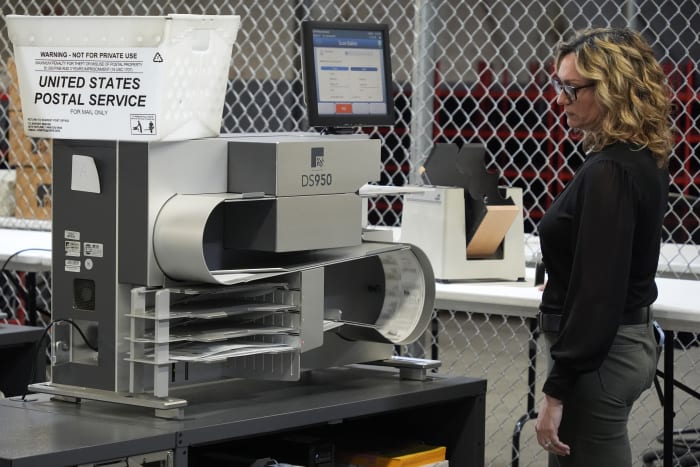
HARRISBURG, Pa. – Pennsylvania is seeing lots of action targeting gaps in its vote-by-mail laws. The problem is that it’s in the courtroom and not the legislature.
That could make the most populous presidential swing state a hotbed of challenges and conspiracy theories if the November election is close, as expected.
The state also has a U.S. Senate contest between Democratic incumbent Bob Casey and Republican challenger David McCormick that will help determine control of the chamber, increasing scrutiny on election offices if lawmakers can’t break a partisan stalemate and vote-counting is slowed by mailed ballots.
“Everyone just really feels how high the stakes are in Pennsylvania, being the largest swing state in the country,” said Lauren Cristella, president and CEO of the Committee of Seventy, a Philadelphia-based good-government group.
Political gridlock in Pennsylvania over election laws dates to 2019, when a Republican-controlled legislature greatly expanded voting by mail in a compromise with then-Democratic Gov. Tom Wolf.
Within months, then-President Donald Trump began, without evidence, demonizing voting by mail as rife with fraud, turning Republican voters against it and leading Republican lawmakers to backtrack on their support. He has taken contradictory stances this year — promoting mail voting while also supporting lawsuits against it.
The attacks on mail voting have created partisan battle lines around attempts to fix it in Pennsylvania.
Democrats also want to add early in-person voting, a convenience already adopted by most states, but it’s been a nonstarter for Republicans. Unlike some other states, Pennsylvanian voters can’t change their election laws because the state constitution doesn’t allow citizens to write their own ballot initiatives.
As a result, election-related lawsuits are sprouting in state, federal and county courts, nearly all targeting mail-in voting.
Across the country, Republicans are trying more than ever now to get their voters to vote by mail, a striking change for a party that amplified conspiracy theories about mail ballots in an attempt to explain away Trump’s 2020 loss.
Still, voting by mail remains largely the province of Democrats. In Pennsylvania, roughly three-fourths of mail-in ballots tend to be cast by Democrats.
Among the most important fixes to the state’s mail balloting law is one sought by counties. It would allow local election offices to begin processing mail-in ballots before Election Day, something nearly every other state with mail voting allows. That would help them produce results more quickly on election night.
Democrats also have sought to resolve a storm of litigation by clarifying the law so that mail-in ballots that lack a handwritten date on the outer envelope, a signature or an inner secrecy envelope can still be counted. Thousands of those ballots get thrown out, although Democratic-leaning counties typically try to help voters fix those errors, so their ballots will count.
Without any fixes in state law, Democrats expect a repeat in November of the chaos around the 2020 election.
Pennsylvania’s Democratic Party chair, Sharif Street, said the state is capable of having a fair and well-run election under its existing laws. But, he said, Trump and his allies aren’t interested in that.
“He doesn’t want a smooth process in Pennsylvania or anywhere, because he believes that the chaos benefits him both in the run-up to the election, because he can rally people around saying that ‘There is going to be a steal,’ and then post-election … (he can) point to irregularities to say that he is the rightful winner, when in fact he’s lost,” Street said.
Trump has been sowing doubts about this year’s election for months. At a rally last weekend, he said only widespread fraud could prevent him from getting reelected. “The only way they can beat us is to cheat,” he told supporters in Las Vegas.
Baseless allegations about fraud filled the vacuum during Pennsylvania’s protracted post-election vote count in 2020.
Charlie Gerow, a longtime Republican activist and strategist in Pennsylvania, said the GOP will be prepared to report and document fraud in ways it wasn’t prepared for in that year’s election. To be clear, voter fraud is extremely rare, typically involves just a few ballots and even involves Republican voters — some of whom have cast extra ballots for Trump.
An Associated Press investigation in 2021 found fewer than 475 cases of potential voter fraud across the six states where Trump disputed his loss, not nearly enough to tip the election. In Pennsylvania alone, Biden beat Trump by more than 80,000 votes.
When Democrats brought legislation to a House vote seeking to let counties process mailed ballots before Election Day — called pre-canvassing — a Republican lawmaker warned it “could lead to various forms of abuse and fraud.”
Pennsylvania Secretary of State Al Schmidt, a Republican, said he hasn’t heard of a single state where that sort of fraud has occurred.
The legislation passed the Pennsylvania House, which is narrowly controlled by Democrats, but is stalled in the Senate, where majority Republicans are demanding that the House first pass a constitutional amendment to expand voter identification requirements.
“I am very worried about public perception and public concern that our process is not secure, and we need to figure out opportunities to make that process more secure,” said Senate Majority Leader Joe Pittman, a Republican.
Democratic House Majority Leader Matt Bradford said he also is worried by the legislative stalemate and its potential impact in November.
“We passed pre-canvassing to try to bring some semblance of certainty quickly, to give people a winner as quickly and accurately as possible,” Bradford said. “That has continued to languish.”
Meanwhile, fights over mail voting in the state are piling up in the courts.
One lawsuit by Republican lawmakers would force mail-in ballots to be counted in polling places, rather than county election offices. That would add “immense complexity and burden to election administration,” county governments opposed to the lawsuit said in court documents.
Democrats and left-leaning groups are suing in state and federal courts over the practice of throwing out mail-in ballots with a missing or incorrect handwritten date on the outer envelope.
And at least two Republican-controlled counties are being sued over their refusal to help voters fix technical errors with mail-in ballots — such as a missing date or inner secrecy envelope — to avoid the ballot getting tossed out.
A bright spot is that counties are getting better at counting mail-in ballots.
During the COVID-19 pandemic in 2020, 2.6 million voters — nearly 40% of the total in Pennsylvania — cast ballots by mail. That overwhelmed counties and required almost four days of post-election vote-counting before a presidential winner could be declared, deciding the contest.
Counties since then have bought more high-speed processing equipment and fine-tuned their Election Day routines to count more efficiently.
Allegheny County, which includes Pittsburgh, expects to produce results on election night. In 2020, it needed most of the next day.
Philadelphia expects to wrap up most of its counting this fall within roughly 24 hours after polls close, a task that could be finished by election night if given the ability to process the ballots before Election Day.
“That is a very normal practice that happens all over the country,” said Seth Bluestein, a Republican election commissioner in Philadelphia. “The fact that we can’t do that in Pennsylvania is what will cause us to not count all the ballots on election night. It is the only cause, and the Legislature could have fixed it.”
___
Follow Marc Levy: twitter.com/timelywriter
___
Follow the AP’s coverage of the 2024 election at https://apnews.com/hub/election-2024.
Copyright 2024 The Associated Press. All rights reserved. This material may not be published, broadcast, rewritten or redistributed without permission.
Pennsylvania
Pennsylvania Public Defense System Is Unconstitutional, Underfunded by at Least $100M, New ACLU Suit Says
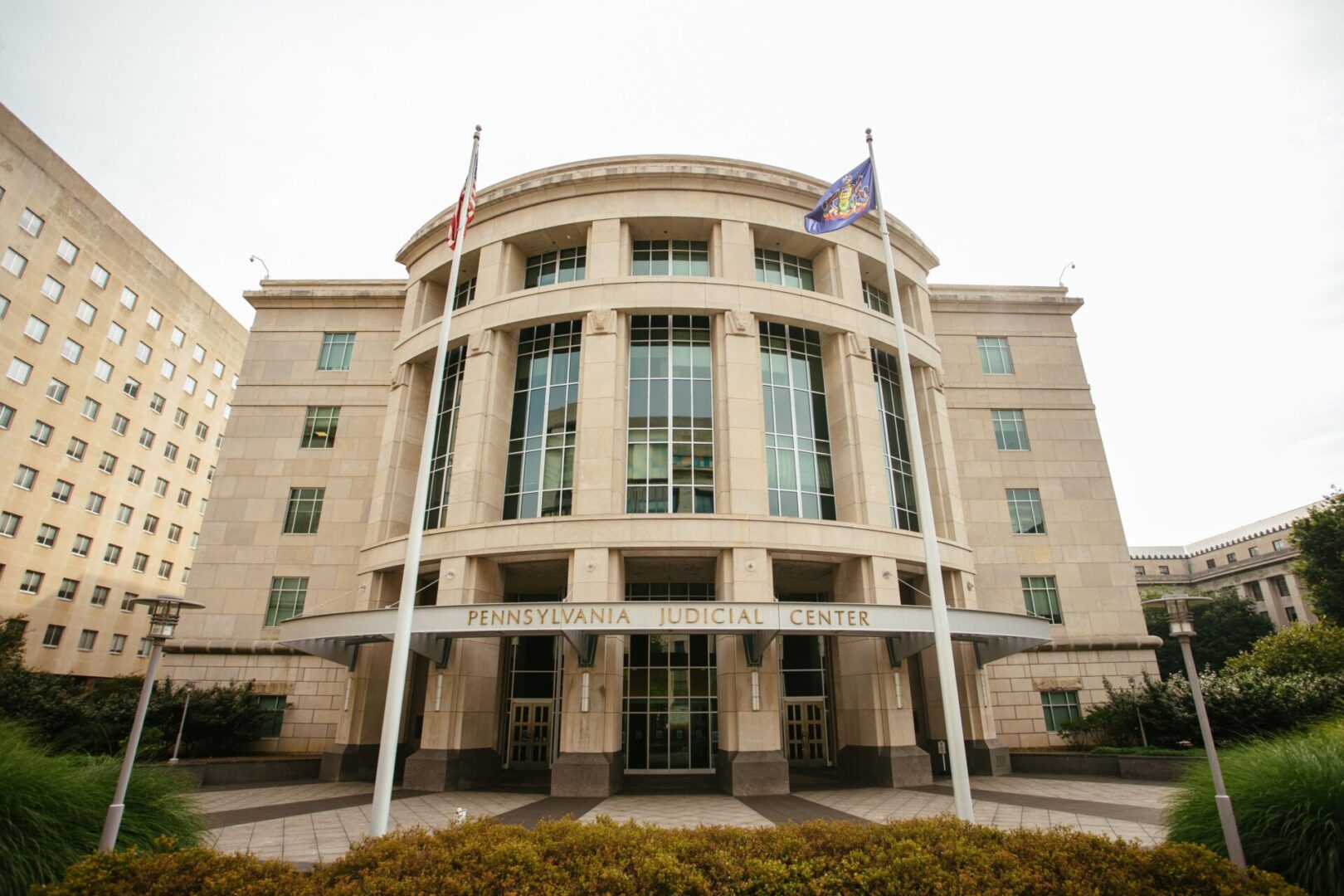
Spotlight PA is an independent, nonpartisan and nonprofit newsroom producing investigative and public-service journalism that holds power to account and drives positive change in Pennsylvania. Sign up for our free newsletters.
HARRISBURG — Pennsylvania has failed to live up to its constitutional responsibility to provide an effective defense to people who can’t afford attorneys and will need to spend at least $100 million to fulfill this obligation, the ACLU of Pennsylvania said in a lawsuit filed Thursday.
The group brought the suit on behalf of 17 people facing issues including little to no contact with the public defenders they are entitled to, according to the lawsuit.
It was also filed on behalf of all current and future indigent people, those accused of a crime and unable to pay for a private defense attorney. If the court approves this group as a class, any outcome will extend to all of those affected.
The suit blames the state, not the counties, for failing to properly fund these constitutionally mandated services and names Democratic Gov. Josh Shapiro, state Senate President Pro Tempore Kim Ward (R., Westmoreland) and state House Speaker Joanna McClinton (D., Philadelphia) as defendants.
At the moment, Pennsylvania only provides $7.5 million to support indigent defense. Counties must make up the rest with limited local funds, and public defenders’ offices are often shut out from funding opportunities available to prosecutors, the suit asserts citing Spotlight PA reporting.
The suit asks Commonwealth Court to rule the current public defense system unconstitutional and retain oversight until the state fully complies with the constitutional right to counsel.
Rather than seeking damages for specific plaintiffs, the suit is pursuing holistic reform, said ACLU of Pennsylvania Legal Director Vic Walczak.
“You’re trying to change how an institution works — here we’re actually talking about how 67 institutions work,” he told Spotlight PA.
Should the court rule in favor of the petitioners, Pennsylvania officials will likely have an opportunity to propose a remedy in consultation with the ACLU of PA. The process will take years, Walczak said.
In a statement to Spotlight PA, Ward spokesperson Erica Clayton said the senator had yet to receive the lawsuit and would need time to review it before commenting.
McClinton spokesperson Nicole Reigelman wrote that “McClinton started her career as a public defender and knows firsthand the value that indigent defense plays in the judicial system.”
Shapiro spokesperson Manuel Bonder, also in a written statement, highlighted the governor’s proposed and ultimately approved funding for public defense in the 2023 budget.
“Governor Shapiro is the first to acknowledge there is a long way to go — which is why he is focused on delivering real results on this critically important issue,” Bonder wrote.
Shapiro is reviewing the complaint and cannot comment further, Bonder said.
The result of the inadequate support is a system in which too few attorneys are responsible for too many cases, and ultimately cannot provide the level of defense the U.S. and Pennsylvania Constitutions demand, attorneys for the petitioners said at a news briefing Thursday morning.
“The right to counsel is not just the right to a warm body with a law degree standing next to you,” Walczak said during the briefing. “It requires a professional who has the time and resources to prepare an adequate constitutional defense.”
Pennsylvania has not provided consistent funding for indigent defense until this year. Instead, state law has made it the sole responsibility of each of the 67 counties to pay for the federal mandate, a burden many are unable to meet.
In 2023, Shapiro proposed $10 million in state funding for public defense, with the promise of consistent funding in the years to come. The legislature ultimately approved $7.5 million in December, giving most public defenders’ offices their first-ever infusion from the state. Shapiro asked lawmakers to increase that allocation to $10 million in his 2024 budget proposal.
The legislature also created a committee to allocate the money and establish statewide standards for public defense, which previously had not existed. In April, the committee announced each county’s allotment, which ranged from about $90,000 for Potter County to $141,000 for Philadelphia.
But even with this new support, each county’s allotment will not be enough to make up the deficit public defender’s offices face, according to the lawsuit, or even the playing field with prosecutors.
To reach parity with average national spending per capita, or with similar states, Pennsylvania would have to allocate hundreds of millions of dollars, the lawsuit argues, a level of spending that counties cannot accomplish on their own.
“Counties do not have the means to raise revenue in the way the state does,” Walczak said, noting counties also have to pay for competing and more politically attractive public services such as education, health and law enforcement.
“You’re talking about an agency, the office of the public defender, that serves a constituency that has no political clout,” he said. “By definition, they’ve got no resources. So, over the course of the last 50 years, indigent defense services have declined persistently.”
The ACLU of PA alleges that public defense is likely underfunded and inadequate in every county, citing a recent study from researchers at the University of Pennsylvania, and singles out some of Pennsylvania’s rural and sparsely populated counties as particularly unequipped to handle their criminal caseload.
Many of the named petitioners have been incarcerated for months, according to the complaint, but received no contact from a public defender despite attempts to reach out. Others saw attorneys they had never met make legal filings or dismissals with their apparent consent, though none was ever secured.
The suit alleges a part-time public defender in Clearfield County asked petitioner David McCauley to pay him $3,500 for private representation. When McCauley declined, the same attorney showed up to a later hearing as no-cost counsel on behalf of the county public defender’s office.
“We don’t endorse the practices laid out in the complaint,” said Sara Jacobson, executive director of the Public Defender Association of Pennsylvania. “That’s not what clients deserve, but that’s also not what public defenders want to be able to provide.”
When there aren’t enough people available to handle the caseload, attorneys have to triage cases, Jacobson said, because that’s all their funding allows.
The complaint describes a man in Lebanon County trying repeatedly to reach his public defender by mail, only to be awoken one night after seven months of incarceration for a midnight meeting with an attorney.
“Of course that’s awful,” Jacobson said. “I know that public defender, though. She had been at the prison until 2 a.m. because she was in court all day.”
BEFORE YOU GO… If you learned something from this article, pay it forward and contribute to Spotlight PA at spotlightpa.org/donate. Spotlight PA is funded by foundations and readers like you who are committed to accountability journalism that gets results.
Pennsylvania
Pennsylvania’s Gas Battleground: What to Watch in Election

Pennsylvania promises to be a political battleground for the natural gas industry in the upcoming election cycle. Tensions between the gas sector and clean energy transition goals of a Democratic gubernatorial administration have been on full display in a year already marked by national divisions on energy and climate. Below, Energy Intelligence examines some of the key areas to watch.
-

 Movie Reviews1 week ago
Movie Reviews1 week agoStream It Or Skip It: ‘Under Paris’ on Netflix, a shark-in-the-Seine thriller that delivers the ludicrousness you crave
-

 News1 week ago
News1 week agoWoman handcuffed in police car hit by freight train reaches $8.5M settlement
-

 News1 week ago
News1 week agoIsrael used a U.S.-made bomb in a deadly U.N. school strike in Gaza
-
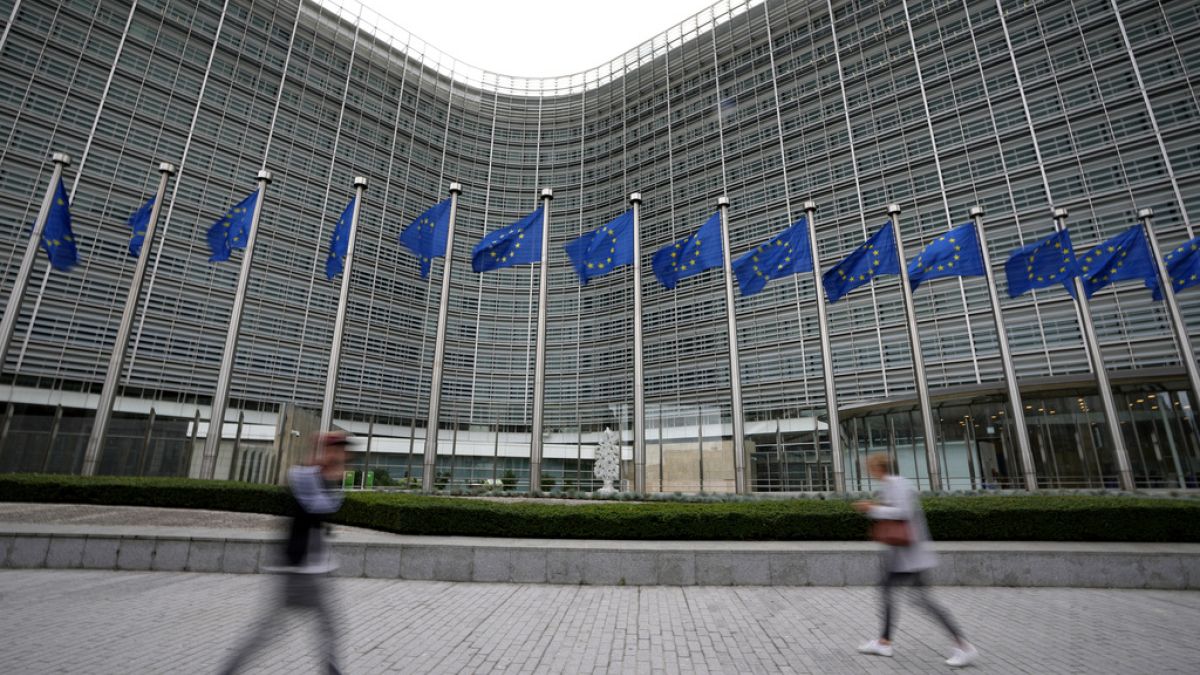
 World1 week ago
World1 week agoEconomy, migration: Voters' main concerns ahead of elections
-

 Politics1 week ago
Politics1 week agoTrump campaign accelerates vetting of potential running mates
-

 Movie Reviews1 week ago
Movie Reviews1 week agoShort Film Review: Blue and White (2022) by Hiroyuki Nishiyama
-

 World1 week ago
World1 week agoWorld leaders, veterans mark D-Day’s 80th anniversary in France
-

 World1 week ago
World1 week agoFrance to provide Ukraine with its Mirage combat aircraft














